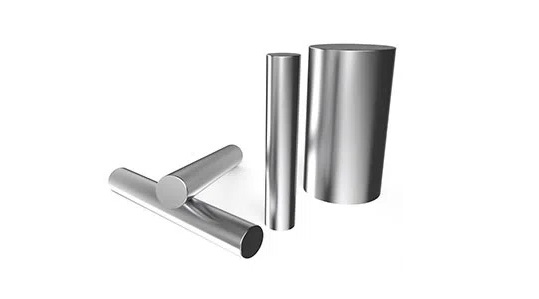Greek Ascoloy, Alloy 418, S41800, Stainless Steel For Turbine Blades
WHY CHOOSE US
In addition to providing the widest range of materials to many different sectors, we are the only company who can melt and forge according to customer requests and produce in the form closest to the final product. We provide services that will increase the added value in products by adding our mechanical processing and heat treatment capabilities to our forging products, which are produced in requested forms from automotive to energy, from maritime to mold industry.
Greek Ascoloy (Alloy 418)
A martensitic chromium-tungsten-nickel stainless grade, Greek Ascoloy (Alloy 418) is ideal for high-stress components up to 649℃
Stainless Steel 418, also known as ‘Greek Ascoloy (UNS S41800) is engineered for use in high-stress components.
Standard Specifications
- AMS 5616, AMS 5508
- UNS S41800
Common Applications of Greek Ascoloy
- Steam turbine buckets and blades
- Gas turbine compressor parts
- High temperature bolts
- Jet engine compressor blades and vanes
- Turbine diffuser components
- Aircraft landing gear
- petrochemical components
- Compressor components
- Steam and gas turbine blades
- Steam turbine buckets
- Elevated temperature bolts
CHEMICAL COMPONENT
| Grade | UNS | Carbon | Manganese | Phosphorus | Sulfur | Silicon | Chromium | Nickel | Molybdenum | Tungsten |
| 615 | S41800 | 0.15–0.20 | 0.50max | 0.04 | 0.03 | 0.50max | 12.00–14.00 | 1.80–2.20 | 0.50max | 2.50–3.50 |
MECHANICAL& PHYSICAL PROPERTIES
| MECHANICAL& PHYSICAL PROPERTIES | 21℃ |
| Ultimate Tensile Strength/MPa | 965 |
| 0.2% Yield Strength /Mpa | 760 |
| Elongation % | 15 |
| Hardness(Brinell) | 302-352(311 max. for annealed material) |
GREEK ASCOLOY 418 STAINLESS BAR – AMS 5616
Greek Ascoloy 418 stainless bar is a higher strength modification of the 12% chromium family of martensitic stainless steels. It’s a precipitation, age hardenable stainless steel that features transverse toughness. It can be machined in all conditions. Greek Ascoloy retains corrosion and oxidation resistance and has usable strength and creep resistance to 1050℉ (566℃). This grade is used for jet engine compressor blades and vanes due to resistance to stress corrosion cracking. Also used for discs in lower temperature turbine stages and for turbine diffuser components.
ABOUT GREEK ASCOLOY (ALLOY 418)
Stainless Steel 418, also known as Greek Ascoloy (UNS 41800) is a heat resisting martensitic chromium-tungsten-nickel stainless steel. Greek Ascoloy is engineered for use in high-stress components up to 649 ℃. Typical heat treatment at 980°C -1010℃ followed by air or oil quenching (depending on material thickness) and 2-hour tempering twice at minimum 620℃ gives Greek Ascoloy (Aloy 418) a superior creep strength and resistance to stress corrosion cracking and tempering as compared to the general properties of 12% chromium stainless steels. Filer metal, UNS S41880, has extra molybdenum (0.50 max.), copper (0.50max) and tin (0.05 max) for effective welding process.
Physical Properties
The corrosion resistance of Greek Ascoloy 418 stainless bar is similar to Alloy 410 stainless bar. This grade resists oxidation up to 1400℉ (760℃) and may be used in continuous service at 1100℉ (593℃). A wide range of mechanical properties can be obtained by hardening and tempering this alloy.
Hardness
Hardness of stock is typically 250 BHN. Supplied in the fully annealed condition. Hardening of this grade is accomplished by austenitizing at 1750-1800℉ (954-982℃) followed by air or oil quench to form martensite.Immediately following austenitizing, tempering should be carried out in the range of 1000-1250℉ (538-677℃) for two hours. The hot working range is 1700-2150℉ (927-1177℃). Large sections should be preheated at 1200-1400℉ (649-760℃) to prevent strain cracking.
Machinability
Rating: 55% OF B-1112.
Typical stock removal rate: 90 surface feet/minute with high speed tools, 150 surface feet/minute with carbide.
Best machinability is in the fully annealed condition. Greek Ascoloy 418 stainless bar has a low work hardening rate and is not “gummy” like austenitic stainless steels during machining.

